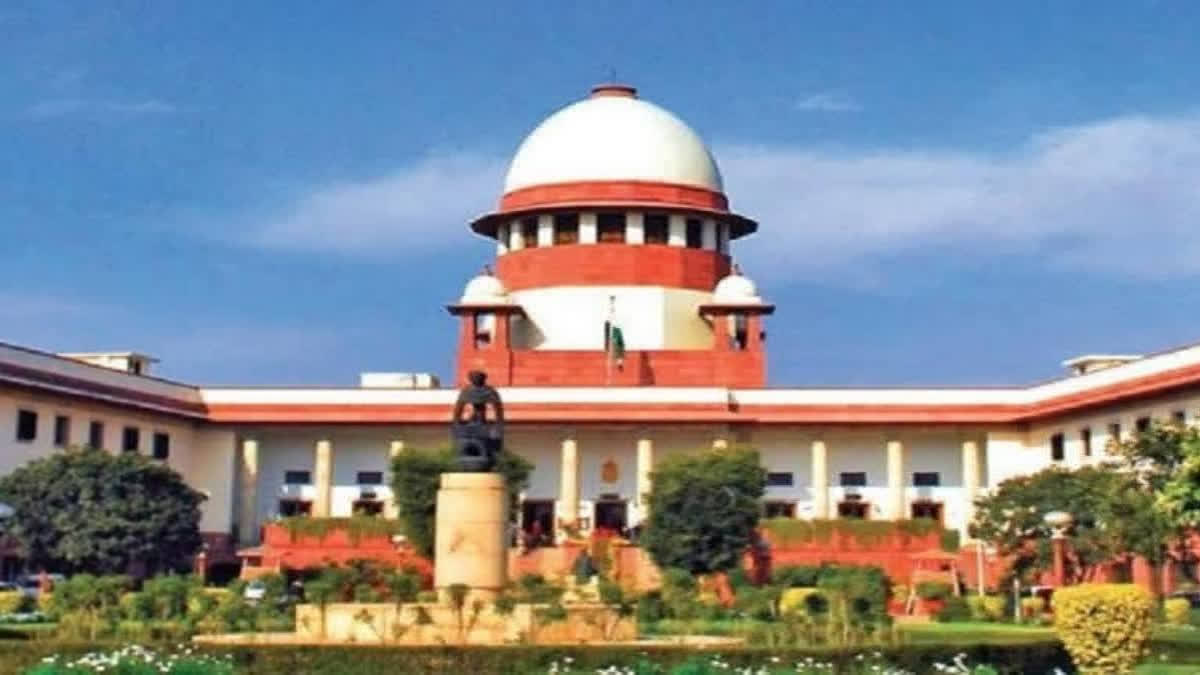New Delhi: The Supreme Court on Monday said in India, the misconceptions about sex education are widespread and contribute to its limited implementation and effectiveness, and many people, including parents and educators, hold conservative views that discussing sex is inappropriate, immoral, or embarrassing. In a landmark judgment, the apex court has ruled that watching and downloading child pornography are offences under the Protection of Children from Sexual Offences (POCSO) Act, 2012.
A bench comprising Chief Justice of India DY Chandrachud and Justice JB Pardiwala said, "Many people, including parents and educators, hold conservative views that discussing sex is inappropriate, immoral, or embarrassing. This societal stigma creates a reluctance to talk openly about sexual health, leading to a significant knowledge gap among adolescents."
Justice Pardiwala, who authored the judgment on behalf of the bench, said one prevalent misconception is that sex education encourages promiscuity and irresponsible behaviour among youth. He said critics often argue that providing information about sexual health and contraception will lead to increased sexual activity among teenagers. However, research has shown that comprehensive sex education delays the onset of sexual activity and promotes safer practices among those who are sexually active, he added.
“Another common belief is that sex education is a Western concept that does not align with traditional Indian values. This view has led to resistance from various state governments, resulting in bans on sex education in schools in some states. This type of opposition hinders the implementation of comprehensive and effective sexual health programmes leaving many adolescents without accurate information," said Justice Pardiwala.
The bench said this is what causes teenagers and young adults to turn to the internet, where they have access to unmonitored and unfiltered information, which is often misleading and can plant the seed for unhealthy sexual behaviours.
Justice Pardiwala said additionally, there is a misconception that sex education only covers biological aspects of reproduction. “Effective sex education encompasses a wide range of topics, including consent, healthy relationships, gender equality and respect for diversity. Addressing these topics is crucial for reducing sexual violence and promoting gender equity," said the bench.
He said positive age-appropriate sex education plays a critical role in preventing youth from engaging in harmful sexual behaviours, including the distribution, and viewing of child sexual exploitative and abuse material (CSEAM).
“It is of paramount importance that we begin to address misconceptions around sexual health and promoting a comprehensive understanding of sex education's benefits is essential for improving sexual health outcomes and reducing the incidence of sexual crimes in India. This is especially crucial given India's growing population”, said Justice Pardiwala.
The bench stressed that research indicates that comprehensive sex education can significantly reduce risky sexual behaviours, increase knowledge, enable healthy decision-making, reduce misinformation, delay sexual debut, decrease the number of sexual partners, and increase contraceptive use. The research done in India has shown the need for comprehensive sex education programmes, it added.
The apex court said that despite some of these challenges, there are successful sex education programmes in India, like the 'Udaan' programme in Jharkhand whose success highlights the importance of community involvement, transparency and government support in overcoming resistance and creating a supportive environment for sex education.
The apex court said collective responsibility can ensure that victims of child pornography receive the care, support and justice they deserve. “By fostering a compassionate and understanding society, we can help them find their path to recovery and regain a sense of safety, dignity and hope. This includes changing societal attitudes towards victims, improving legal frameworks to protect them, and ensuring that perpetrators are held accountable," said Justice Pardiwala.
The apex court set aside the Madras High Court ruling that said mere downloading and watching child pornography was not an offence under the POCSO Act and the IT Act.
Read more: Storage Or Watching Of Child Pornography Is Offence Under POCSO Act: Supreme Court



